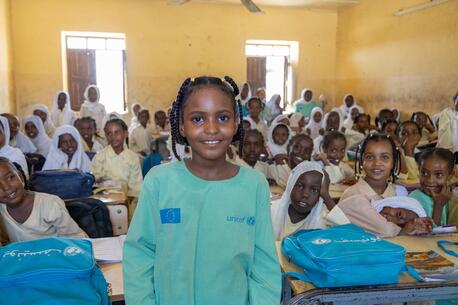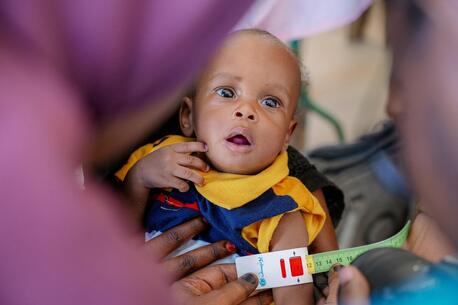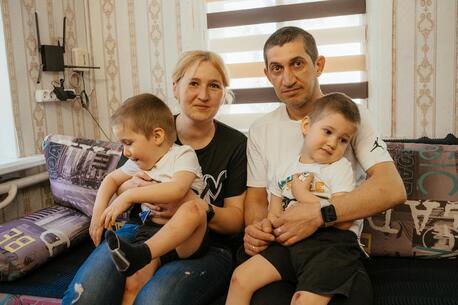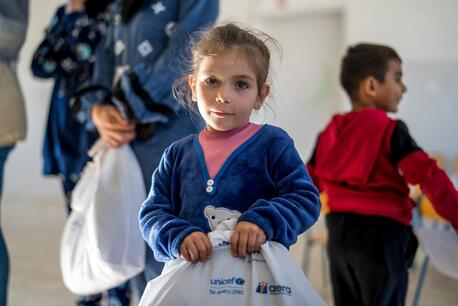
Children in Need as Armed Conflict Escalates in Lebanon and Israel
UNICEF is calling for an immediate de-escalation of hostilities as children and families find themselves trapped in an increasingly dire situation.
Cross-border shelling and air raids threaten children's lives and mental health
UNICEF is working with partners to provide urgent assistance to children and families caught in rising hostilities between Israel and Hezbollah.
The protracted cross-border conflict escalated drastically on Sept. 23, reportedly killing nearly 500 people, including at least 35 children — and injuring more than 1,600.
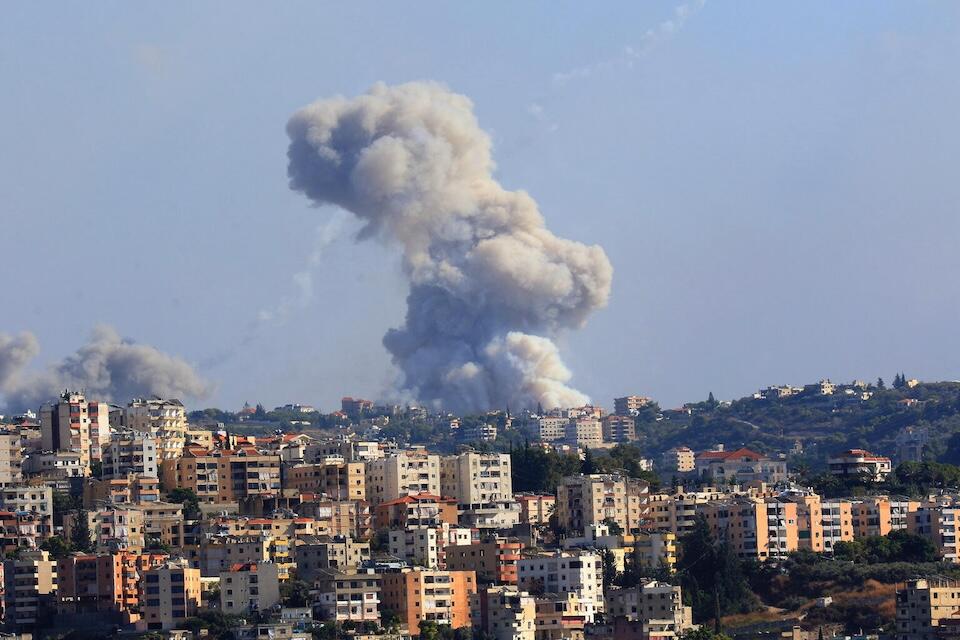
Alarming levels of psychological stress among children in both Israel and Lebanon
“I am deeply alarmed by the ongoing surge of deadly attacks in Lebanon and Israel, which earlier today reportedly claimed the lives of at least 24 children in southern Lebanon," UNICEF Executive Director Catherine Russell said in a press statement on Sept. 23. "The intensifying violence represents a dangerous escalation for civilians in the area."
“Countless more children are in danger, with thousands of families displaced from their homes, and attacks on civilian infrastructure," Russell continued. “Alarming levels of psychological distress have been reported among children in both countries, stemming not only from their sudden displacement but also from the barrage of shelling and air raids which have become their daily reality for nearly a year."
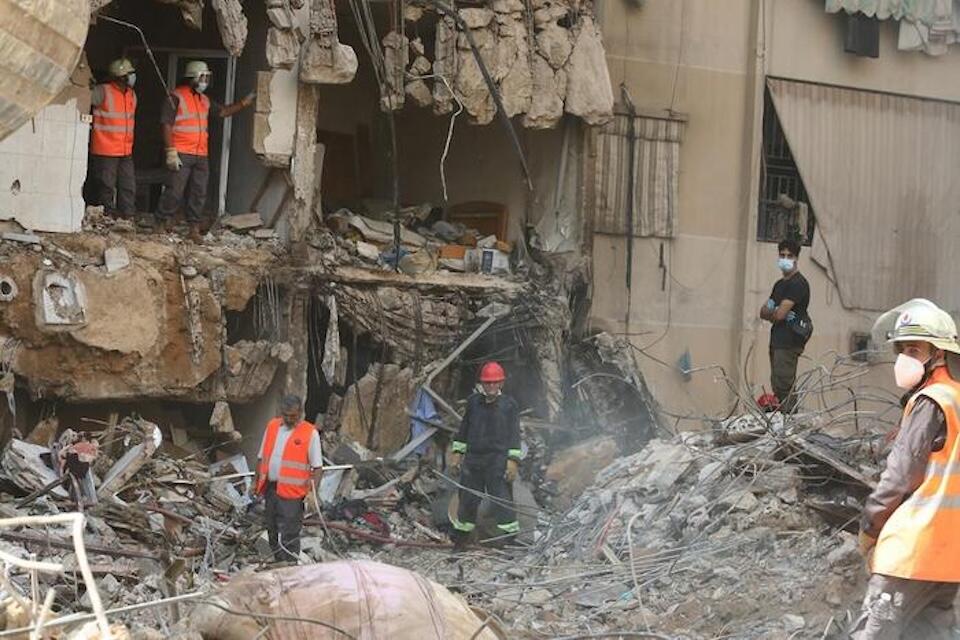
UNICEF delivering lifesaving medical supplies
Prior to the onset of the current conflict, Lebanon's health care system was already on the verge of collapse. As the number of injured rises, UNICEF is dispatching lifesaving medical supplies and commodities to overstretched hospitals facing severe shortages and supply stock-outs in Lebanon.
By Sept. 23, UNICEF had procured and delivered a total of 100 tons of emergency medical supplies to Lebanon's Ministry of Public Health for distribution to public and private hospitals, especially those in conflict-affected areas.
UNICEF also continues to be concerned about the mental health impacts on children in Israel. Learn more about where UNICEF works here.
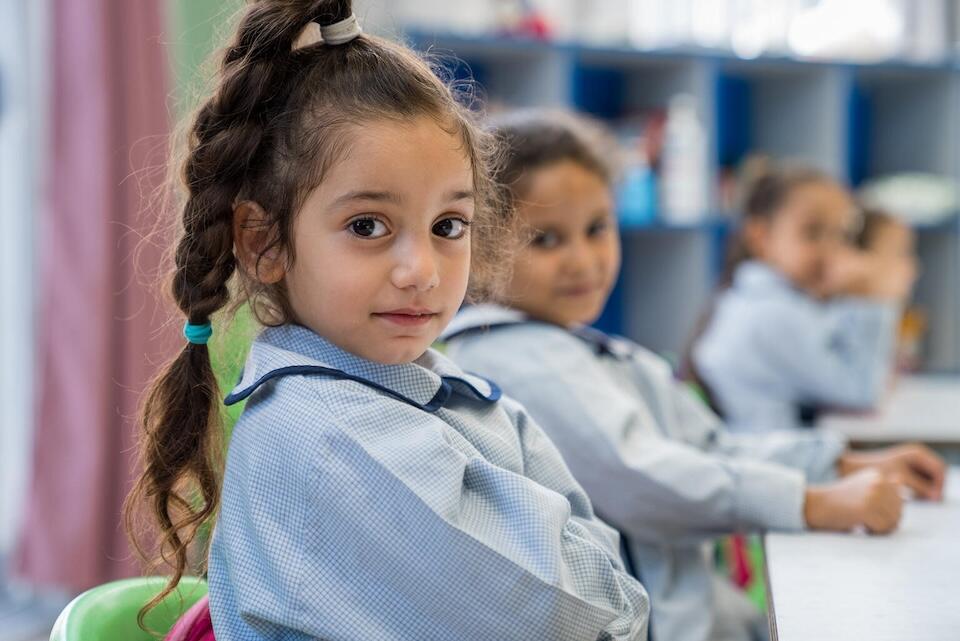
Waves of displaced families have left their homes in villages and towns
“Schools are closed today across the country, leaving children at home in fear," Ettie Higgins, UNICEF Deputy Representative in Lebanon, said in a Geneva Palais briefing on Sept. 24. "Their caregivers are themselves afraid of the uncertainty of the situation. This fear cannot be overstated, as the barrage of shelling and air raids continue, and increase, daily."
“Any further escalation in this conflict would be catastrophic for all children in Lebanon, but especially families from villages and towns in the south and the Bekaa, in eastern Lebanon, who have been forced to leave their homes," Higgins continued. "These newly displaced add to the 112,000 people who have been displaced since October."
Higgins said 87 new shelters are accommodating the growing numbers of internally displaced people. UNICEF is preparing to deliver food, water and essential supplies such as mattresses and hygiene kits to displaced families, especially those in collective shelters.
Lebanon has the world's highest concentration of refugees per capita
The conflict is the latest crisis to impact Lebanon, which has been devastated by the Port of Beirut explosion, the impact of COVID-19, conflicts in surrounding countries and a crippling, five-year economic downturn.
Over half the population lives in poverty. An estimated one in seven people in Lebanon are refugees, mostly Palestinian and Syrian — the highest per capita concentration of refugees in the world.
UNICEF has been on the ground in Lebanon for more than 70 years, working with partners to meet children's basic needs. Since the onset of the conflict, UNICEF has deployed extensive resources to support the resilience of displaced families and mitigate the impact of displacement, including:
- delivering lifesaving supplies and services
- providing urgent support to displaced and host communities
- preserving resilience through support to essential service delivery across the most affected areas
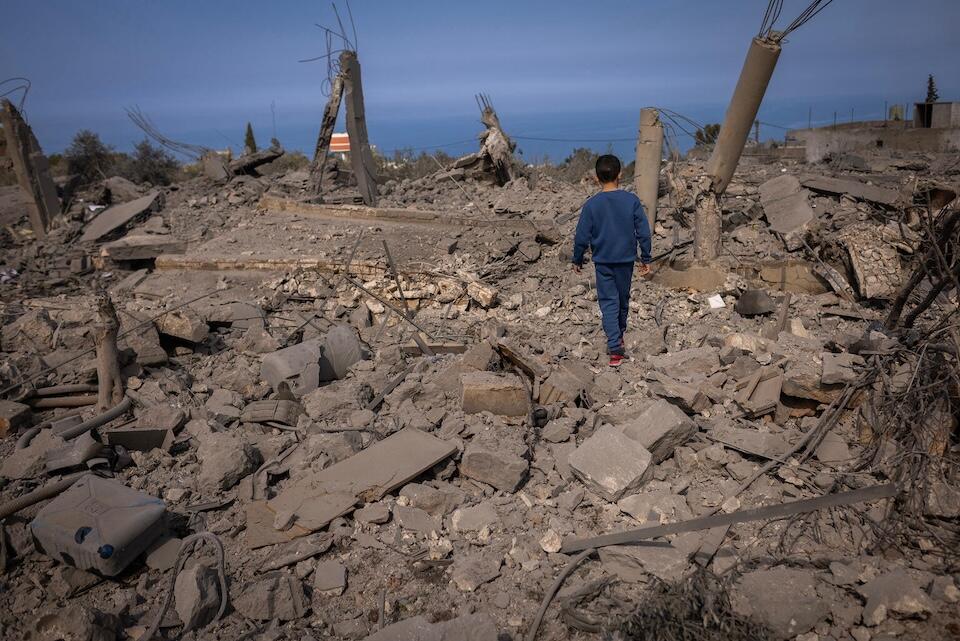
Protection of children must come first
UNICEF is urging all parties to the conflict to:
- prioritize the protection of children above all else
- ensure uninterrupted access to education for all children
- invest in rights-based, gender-responsive and inclusive systems designed to protect all children
- safeguard civilian infrastructure, including schools and hospitals
- sustain the ongoing support of the international community
“All parties must uphold their obligations under international humanitarian law to protect civilians, civilian infrastructure, humanitarian workers and medical personnel," said Russell. "This includes facilitating the safe movement of civilians seeking safety. UNICEF urgently calls for an immediate de-escalation.”
Children don't start wars but they pay the highest price. Wherever children are in need, UNICEF is there to help. Your contribution can make a difference. Please donate today.
HOW TO HELP
There are many ways to make a difference
War, famine, poverty, natural disasters — threats to the world's children keep coming. But UNICEF won't stop working to keep children healthy and safe.
UNICEF works in over 190 countries and territories — more places than any other children's organization. UNICEF has the world's largest humanitarian warehouse and, when disaster strikes, can get supplies almost anywhere within 72 hours. Constantly innovating, always advocating for a better world for children, UNICEF works to ensure that every child can grow up healthy, educated, protected and respected.
Would you like to help give all children the opportunity to reach their full potential? There are many ways to get involved.



